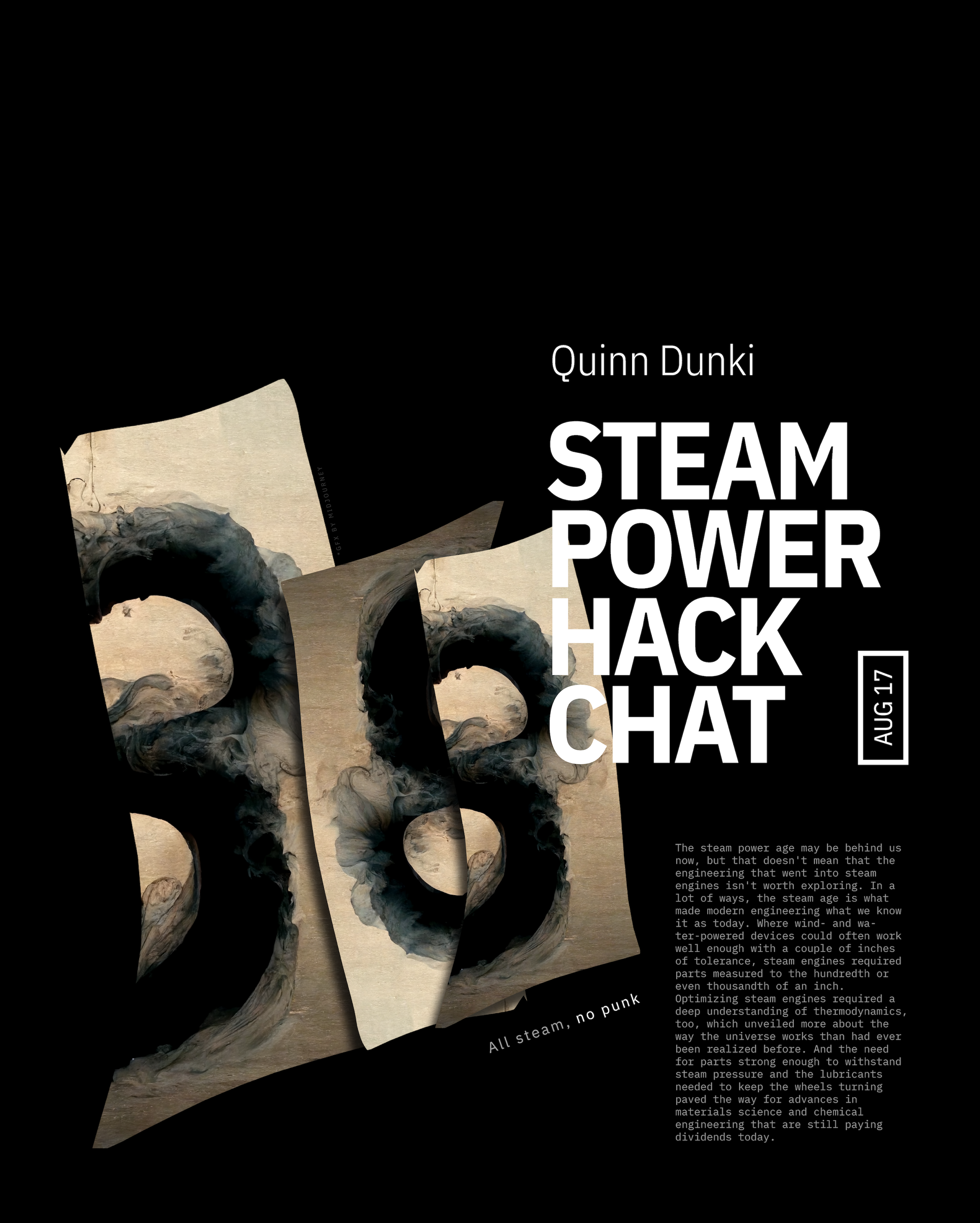Quinn Dunki will host the Hack Chat on Wednesday, August 17 at noon Pacific.
Time zones got you down? Try our handy time zone converter.
The steam power age may be behind us now, but that doesn't mean that the engineering that went into steam engines isn't worth exploring. In a lot of ways, the steam age is what made modern engineering what we know it as today. Where wind- and water-powered devices could often work well enough with a couple of inches of tolerance, steam engines required parts measured to the hundredth or even thousandth of an inch. Optimizing steam engines required a deep understanding of thermodynamics, too, which unveiled more about the way the universe works than had ever been realized before. And the need for parts strong enough to withstand steam pressure and the lubricants needed to keep the wheels turning paved the way for advances in materials science and chemical engineering that are still paying dividends today.
Celebrating the achievements of steam power may seem anachronistic, but in light of everything steam has done for us, it makes a lot of sense. And that's not to mention the cool aesthetics of steam engines, with beefy castings and brass parts sliding back and forth, complicated linkages doing who-knows-what to make the engine work on nothing more than a little bit of boiling water. There's the attraction of danger, too; improperly built boilers can be a disaster, so building a boiler that's safe to use can be quite a challenge.
All this and more is what the hobby steam field is all about, an area that Quinn Dunki has been exploring for a while now. Over on her YouTube channel, Quinn has documented the process of turning raw metal into a working steam engine and boiler, and is currently working on a bigger, more powerful engine. We've invited her on the Hack Chat to talk about all things steam -- where to get started in the hobby, what kinds of things you can learn by building your own steam engines, and how her current builds are going. If you've ever wanted to explore steam power, here's your chance to ask a real aficionado.










